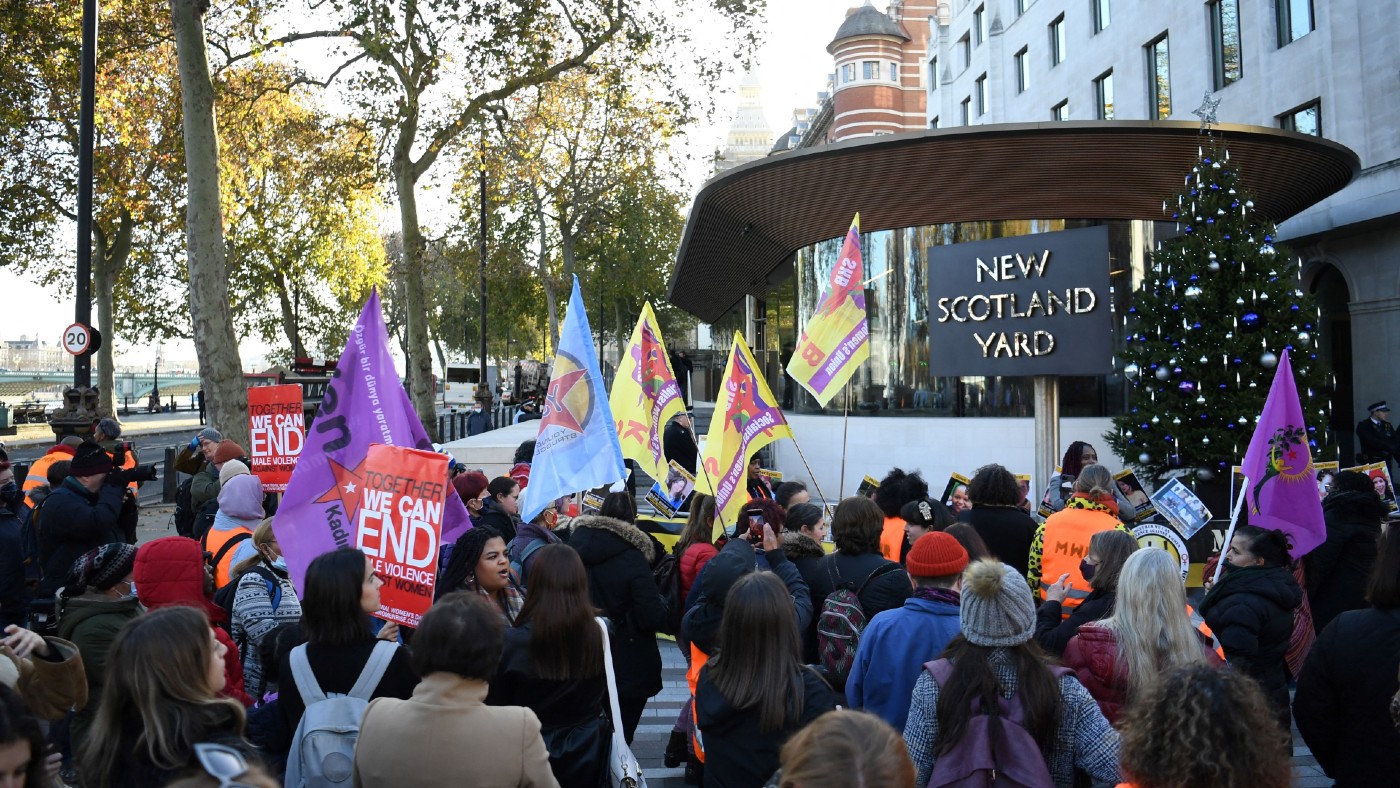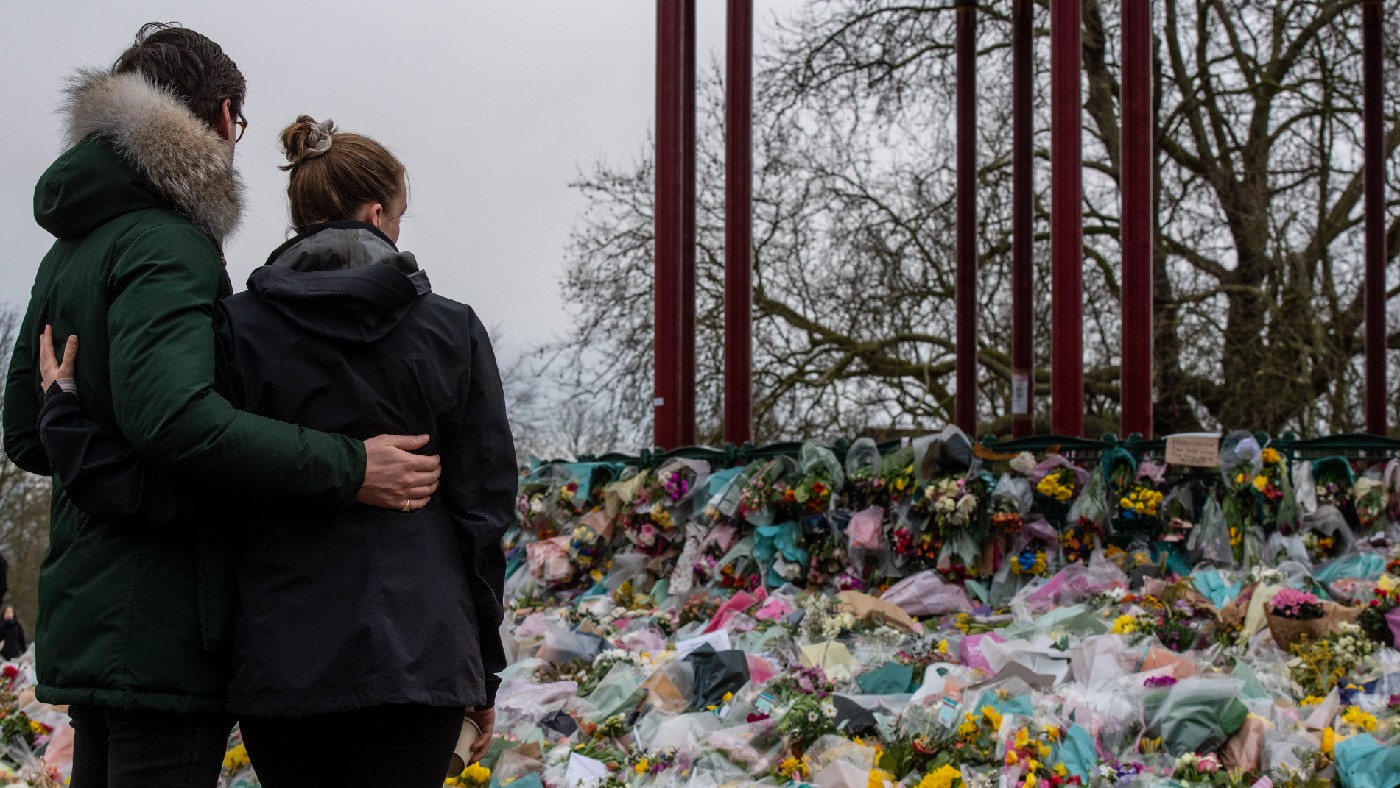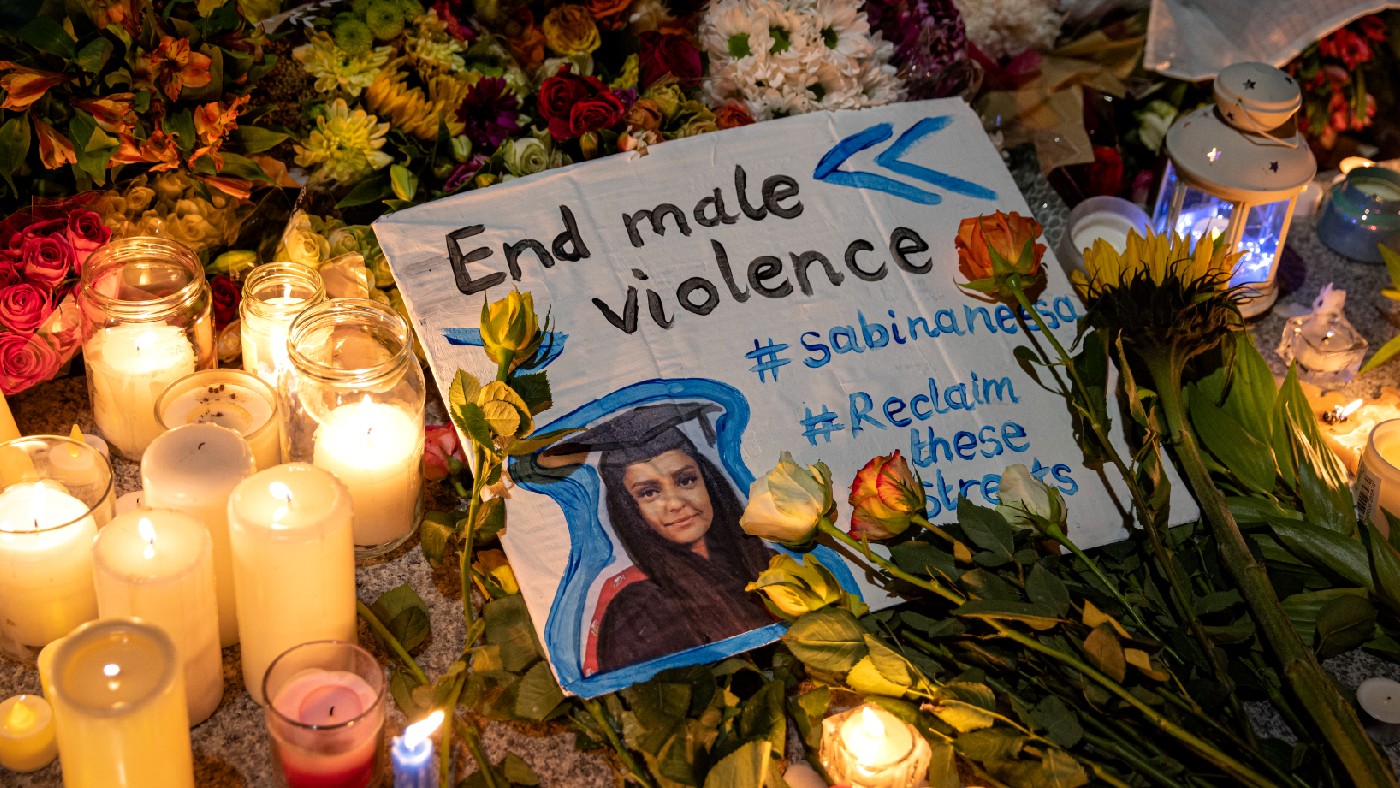How can London’s streets be made safer for women?
Females of all ages were subjected to ‘epidemic of violence’ in 2021

A free daily email with the biggest news stories of the day – and the best features from TheWeek.com
You are now subscribed
Your newsletter sign-up was successful
Metropolitan Police officers are hunting for a man who raped a female jogger in a south London park just two days before Christmas.
The early morning attack in Streatham Common on 23 December followed what The Guardian described as an “epidemic of violence” against women and girls across the UK in 2021.
High-profile attacks in the English capital included the abduction, rape and murder of 33-year-old Sarah Everard by former London police officer Wayne Couzens in March, and the killing of 28-year-old primary school teacher Sabina Nessa in September. London Mayor Sadiq Khan admitted following Everard’s disappearance that the city’s streets were not safe “for women or for girls” – fuelling calls for urgent action to tackle the crisis.
The Week
Escape your echo chamber. Get the facts behind the news, plus analysis from multiple perspectives.

Sign up for The Week's Free Newsletters
From our morning news briefing to a weekly Good News Newsletter, get the best of The Week delivered directly to your inbox.
From our morning news briefing to a weekly Good News Newsletter, get the best of The Week delivered directly to your inbox.

‘Design out crime’
Khan said during an interview on LBC radio in March that it was “really important that people of my gender” understand that “if you’re a woman or a girl, your experiences of our city, in any public space, whether it’s in the workplace, on the streets, on public transport, is very different to if you are a man or a boy”.
The mayor told presenter Shelagh Fogarty that he had been “working with councils on limited funds” to “design out crime”, such as by making that roads are better lit at night. “It can’t be right that if you’re a woman or girl, you’re having to work out which routes are better lit than those that aren’t, which shops and places are open you can duck into if you’re scared for your safety, and having to change the footwear and clothes you wear,” he said.
The government also announced a series of measures designed “to provide further reassurance for women and girls”, including doubling the size of the Safer Streets fund, which provides neighbourhood measures such as better lighting and CCTV, to £45m.

Is better lighting the answer?
The focus on improving lighting and CCTV in specific areas, rather than addressing the root causes of violence against females, was criticised by activists, who said the measures were a “sticking plaster” for a society-wide problem, The Guardian reported.
A free daily email with the biggest news stories of the day – and the best features from TheWeek.com
Andrea Simon, director of the End Violence Against Women coalition, claimed the measures rolled out by the government following Everard’s murder “completely ignored all the structural issues around men’s violence towards women”.
The government’s tactics were also widely criticised on social media. One Twitter user wrote: “Please can we urge that there is curriculum on equality, respect and anti-discrimination in schools. Prevent misogyny, racism and hate at the root.”
Project Vigilant
The measures announced by the government in March also included the national roll-out of pilots of a scheme called Project Vigilant. Under the scheme, both uniformed and plain clothes officers identify predatory and suspicious offenders in and around night-time venues.
“This can involve officers attending areas around clubs and bars undercover to better ensure women are safe in these locations, and increased patrols as people leave at closing time,” Downing Street said.
In November, the government awarded almost £300,000 in funding for Project Vigilant, which was first trialled in Oxford in 2019. Thames Valley Police said the funding would be used to “help train officers to spot predatory behaviour, pay for those snared in undercover operations to go on rehabilitation courses” and to “put staff at bars and clubs through training to identify and challenge unacceptable behaviour”, the Oxford Mail reported.
Proponents have claimed that Project Vigilant is already making a difference. Police involved in the scheme stopped 117 people in Oxford, Reading, Milton Keynes and Windsor between 23 July and 4 November last year, and arrested ten “including for harassing women, making unwanted sexual comments and loitering in areas where sexual assaults were known to take place”, according to the newspaper.
Onus on all men
Alongside measures introduced by the police and government, many people believe that all men have a responsibility to make the streets safer for women and girls.
Following the high-profile murders of women in the UK last year, social media was packed with “tips” for men on how to make females feel safer at night. Suggestions included crossing the road away from a woman on her own, and walking female friends and relatives home.
Violence against women and girls is “particularly an issue for men”, Labour leader Keir Starmer told journalists following Everard’s murder. “We have to tackle it at root, we all need to recognise how we need to understand the issue, challenge behaviours.”
Charities such as Beyond Equality are working with men and boys to promote gender equality, inclusive communities and healthier relationships. In a statement on its website, the charity has argued that “we know that education and a concerted social effort can play a large part in addressing this issue collectively to prevent violence and eliminate the structures that encourage or condone it.
“This, and on supporting survivors, is where the investment of funds and energy should be placed.”

Tougher sentences
Some campaigners argue that tougher sentences for violence committed against women and girls are also needed to help make streets safer in London and beyond.
The government has pledged to bring in “landmark legislation” that will work alongside other provisions, such as Home Secretary Priti Patel’s controversial Police, Crime, Sentencing and Courts Bill. Patel said that her bill would toughen sentencing for rapists by ending “the halfway release for those convicted of sexual offences”, the Financial Times reported.
However, a recent report by the Law Commission on hate crime legislation rejected a proposal to make misogyny a hate crime, concluding that “simply adding sex or gender to hate crime laws” was “unlikely to capture much public sexual harassment”.
The recommendation was condemned by leading women’s rights and hate crime organisations. The Fawcett Society said the commission’s review was “too narrow and doesn’t recognise the value of including misogyny to enable recording of incidents, which are currently invisible”.
Kate Samuelson is The Week's former newsletter editor. She was also a regular guest on award-winning podcast The Week Unwrapped. Kate's career as a journalist began on the MailOnline graduate training scheme, which involved stints as a reporter at the South West News Service's office in Cambridge and the Liverpool Echo. She moved from MailOnline to Time magazine's satellite office in London, where she covered current affairs and culture for both the print mag and website. Before joining The Week, Kate worked at ActionAid UK, where she led the planning and delivery of all content gathering trips, from Bangladesh to Brazil. She is passionate about women's rights and using her skills as a journalist to highlight underrepresented communities. Alongside her staff roles, Kate has written for various magazines and newspapers including Stylist, Metro.co.uk, The Guardian and the i news site. She is also the founder and editor of Cheapskate London, an award-winning weekly newsletter that curates the best free events with the aim of making the capital more accessible.